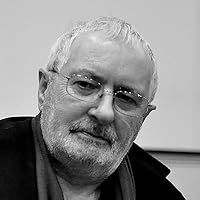144 books
—
147 voters


“I am willing to serve my country, but my worship I reserve for Right which is far greater than my country. To worship my country as a god is to bring a curse upon it.”
― The Home and the World
― The Home and the World

“Those who speak of harmony and consensus should beware of what one might call the industrial chaplain view of reality. The idea, roughly speaking, is that there are greedy bosses on one side and belligerent workers on the other, while in the middle, as the very incarnation of reason, equity and moderation, stands the decent, soft-spoken, liberal-minded chaplain who tries selflessly to bring the two warring parties together. But why should the middle always be the most sensible place to stand? Why do we tend to see ourselves as in the middle and other people as on the extremes? After all, one person’s moderation is another’s extremism. People don’t go around calling themselves a fanatic, any more than they go around calling themselves Pimply. Would one also seek to reconcile slaves and slave masters, or persuade native peoples to complain only moderately about those who are plotting their extermination? What is the middle ground between racism and anti-racism?”
― Why Marx Was Right
― Why Marx Was Right

“to tyrannize for the country is to tyrannize over the country”
― The Home and the World
― The Home and the World

“If Marx had no time for the state, it was partly because he viewed it as a kind of alienated power. It was as though this august entity had confiscated the abilities of men and women to determine their own existence, and was now doing so on their behalf. It also had the impudence to call this process ‘‘democracy.’’ Marx himself began his career as a radical democrat and ended up as a revolutionary one, as he came to realize just how much transformation genuine democracy would entail; and it is as a democrat that he challenges the state’s sublime authority. He is too wholehearted a believer in popular sovereignty to rest content with the pale shadow of it known as parliamentary democracy. He is not in principle opposed to parliaments, any more than was Lenin. But he saw democracy as too precious to be entrusted to parliaments alone. It had to be local, popular and spread across all the institutions of civil society. It had to extend to economic as well as political life. It had to mean actual self-government, not government entrusted to a political elite. The state Marx approved of was the rule of citizens over themselves, not of a minority over a majority.
The state, Marx considered, had come adrift from civil society. There was a blatant contradiction between the two. We were, for example, abstractly equal as citizens within the state, but dramatically unequal in everyday social existence. That social existence was riven with conflicts, but the state projected an image of it as seamlessly whole. The state saw itself as shaping society from above, but was in fact a product of it. Society did not stem from the state; instead, the state was a parasite on society. The whole setup was topsy-turvy. As one commentator puts it, ‘‘Democracy and capitalism have been turned upside down’’—meaning that instead of political institutions regulating capitalism, capitalism regulated them. The speaker is Robert Reich, a former U.S. labour secretary, who is not generally suspected of being a Marxist. Marx’s aim was to close this gap between state and society, politics and everyday life, by dissolving the former into the latter. And this is what he called democracy. Men and women had to reclaim in their daily lives the powers that the state had appropriated from them. Socialism is the completion of democracy, not the negation of it. It is hard to see why so many defenders of democracy should find this vision objectionable.”
― Why Marx Was Right
The state, Marx considered, had come adrift from civil society. There was a blatant contradiction between the two. We were, for example, abstractly equal as citizens within the state, but dramatically unequal in everyday social existence. That social existence was riven with conflicts, but the state projected an image of it as seamlessly whole. The state saw itself as shaping society from above, but was in fact a product of it. Society did not stem from the state; instead, the state was a parasite on society. The whole setup was topsy-turvy. As one commentator puts it, ‘‘Democracy and capitalism have been turned upside down’’—meaning that instead of political institutions regulating capitalism, capitalism regulated them. The speaker is Robert Reich, a former U.S. labour secretary, who is not generally suspected of being a Marxist. Marx’s aim was to close this gap between state and society, politics and everyday life, by dissolving the former into the latter. And this is what he called democracy. Men and women had to reclaim in their daily lives the powers that the state had appropriated from them. Socialism is the completion of democracy, not the negation of it. It is hard to see why so many defenders of democracy should find this vision objectionable.”
― Why Marx Was Right
Ariz’s 2024 Year in Books
Take a look at Ariz’s Year in Books, including some fun facts about their reading.
More friends…
Favorite Genres
Polls voted on by Ariz
Lists liked by Ariz









































